Definition of Prospects
Prospects are potential customers who have shown interest in your product or service. They are more than just leads; they have the potential to become actual customers. Imagine you run a bakery. Someone who visits your shop, asks about your cakes, and leaves without buying is a prospect. They are interested but haven't made a purchase yet.
Importance of Prospects in Business and Sales
The importance of elite prospects in business and sales are the following:
- Building Relationships: Prospects are the foundation of future sales. By nurturing them, you build trust and rapport. Think of a local bookstore owner who knows their regulars' preferences. This connection increases the likelihood of future purchases.
- Targeted Marketing: Understanding prospects allows for personalized marketing strategies. A gym, for instance, can offer tailored fitness plans to those who have inquired about memberships, increasing their chances of signing up.
- Sales Forecasting: Knowing your prospects helps in predicting future sales. A car dealership can estimate potential sales based on the number of test drives booked, aiding inventory planning and goal setting.
Identifying Prospects
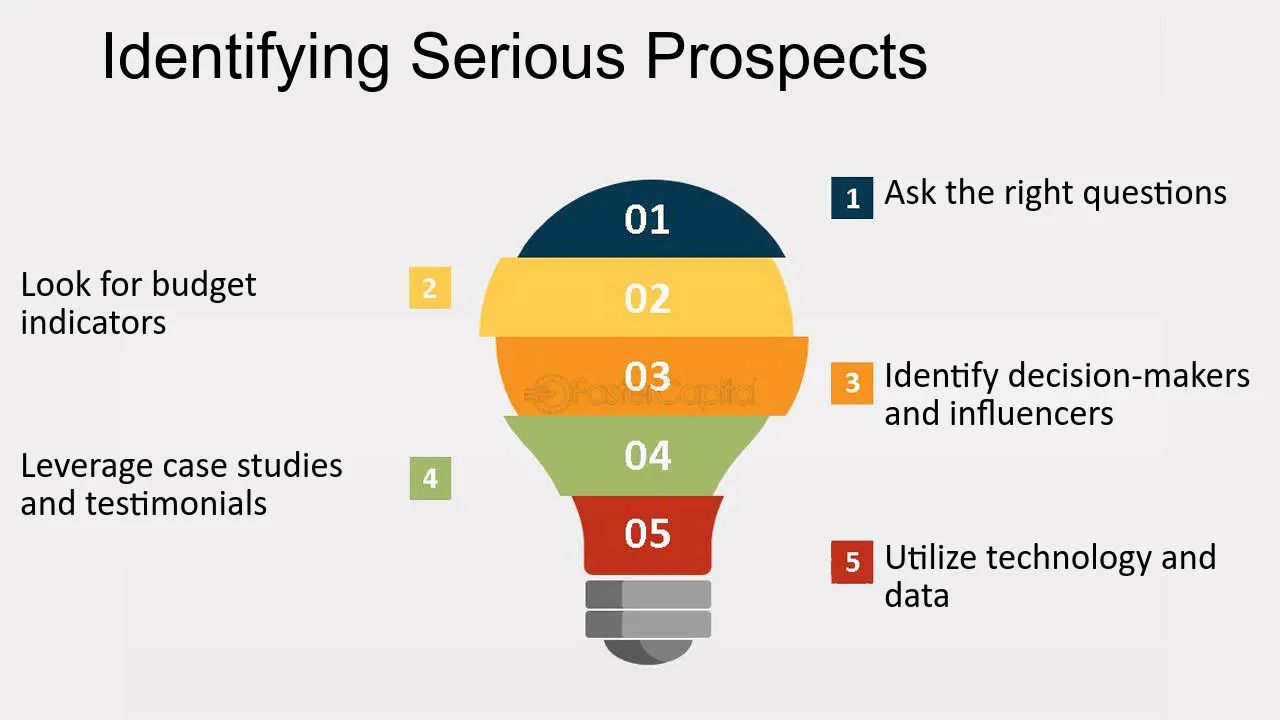
Identifying and researching prospects is a crucial step in the sales process. Knowing who to target and how to gather information about them can make or break your business efforts.
Criteria for Good Prospects
The criteria for good and elite prospects are the following:
- Interest: A good prospect shows genuine interest in your product. A restaurant visitor who inquires about catering services demonstrates potential.
- Need: They have a clear need for what you offer. A small business owner seeking marketing help fits this criterion.
- Budget: They can afford your service or product. A company looking for software solutions with a specified budget is a promising prospect.
- Authority: They have the power to make purchasing decisions. A department head sourcing new equipment is an ideal prospect.
Tools for Identifying Prospects
The tools for identifying good and elite prospects are the following:
- Social Media: Platforms like LinkedIn and Twitter are goldmines for finding prospects. A freelance graphic designer might search for businesses posting about design needs.
- Networking Events: Attending industry-specific events helps in meeting potential prospects face-to-face. A real estate agent meeting potential home buyers at a property expo is an example.
- Industry Publications: Reading trade magazines and journals can reveal potential prospects. A tech startup might find leads through industry reports highlighting companies seeking innovation.
Researching Prospects
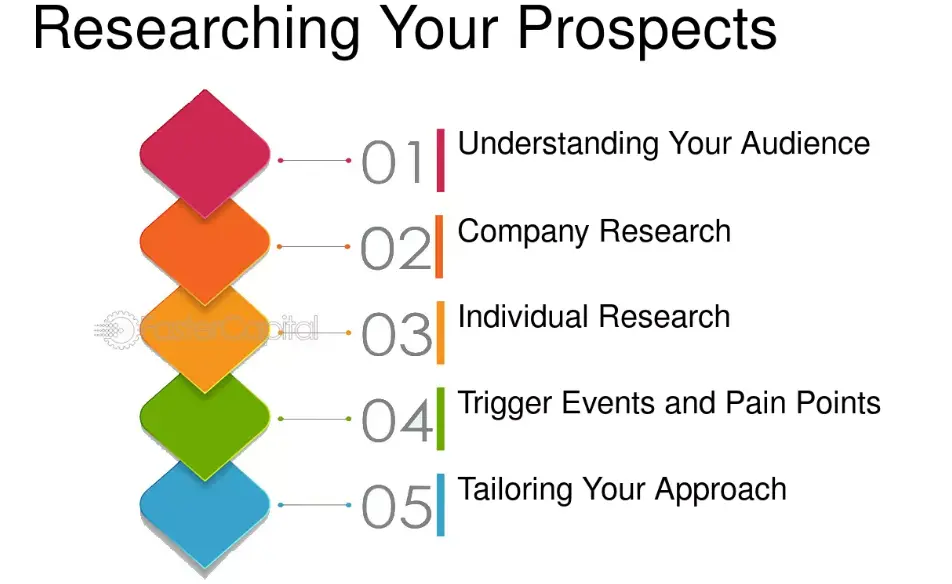
In this section, you’ll find about the researching prospects, which is another crucial step.
Importance of Research
Researching prospects ensures you understand their needs and how to approach them. This step increases the chances of converting them into customers.
Methods of Research
The methods of research prospects are as follows:
- Online Search: Use search engines to gather background information. For example, a photographer might search for local businesses that need professional photos.
- Company Websites: Visiting a prospect’s website provides insights into their services and values. A consultant can learn about a company's recent projects and tailor their pitch accordingly.
- LinkedIn Profiles: Reviewing LinkedIn profiles helps understand a prospect’s professional background and connections. A sales manager could find standard connections and use them to make an introduction.
Approaching Prospects
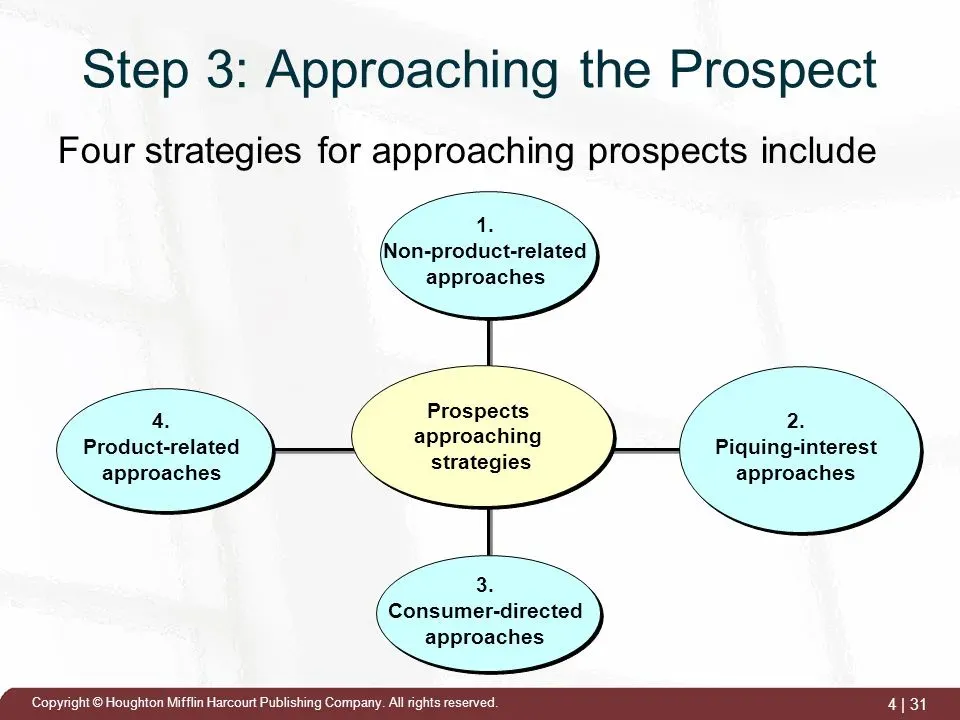
To turn prospects into customers, you need a strategic approach. This involves crafting the right messages, understanding their needs, and nurturing relationships.
Crafting the Initial Message
To craft the initial message, follow:
- Personalization: Tailor your message to each prospect. Address them by name and reference their specific needs. If you’re a fitness trainer, mention their interest in a specific type of workout.
- Value Proposition: Clearly state what you offer and how it benefits them. A marketing consultant should highlight how their services can increase a company's sales.
Best Practices for Outreach
The best practices for outreach are the following:
- Email: Keep it short and engaging. A software vendor might send a concise email offering a free trial.
- Phone Calls: Be direct and respectful of their time. An insurance agent could call to offer a personalized quote.
- Social Media: Use platforms like LinkedIn to connect. A job recruiter might send a direct message highlighting relevant job opportunities.
Qualifying Prospects
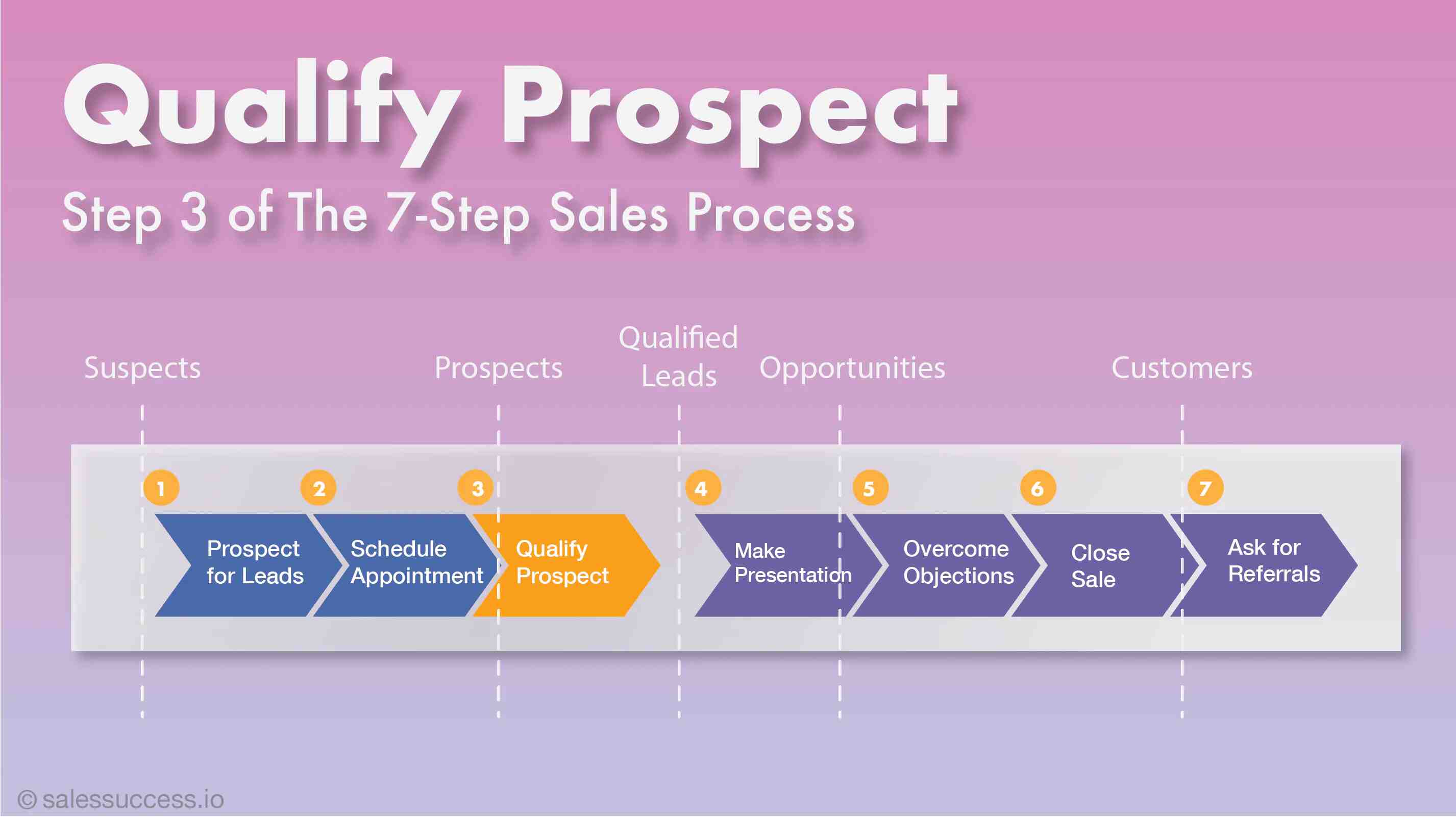
The next step is to qualify elite prospects, so here are the criteria and tools.
Criteria for Qualification
The criteria for qualification of elite prospects are as follows:
- Need: Ensure the prospect has a need for your product. A web developer should look for businesses with outdated websites.
- Budget: Verify they can afford your solution. A financial advisor should confirm the prospect's budget aligns with their services.
- Authority: Confirm they can make purchasing decisions. A software company should ensure they’re talking to someone with decision-making power.
- Timing: Determine if it’s the right time for them to buy. A seasonal product seller might qualify prospects based on seasonal demand.
Tools for Qualification
The tools for qualification of elite prospects are as follows:
- CRM Systems: Track and manage prospects. A real estate agent uses CRM to monitor potential buyers’ activities.
- Qualification Frameworks: Use methods like BANT (Budget, Authority, Need, Timing). A sales rep might use BANT to prioritize prospects.
Nurturing Prospects
In this section, you will find information about nurturing prospects.
Importance of Nurturing
Nurturing keeps prospects engaged and moves them through the sales funnel. It builds trust and positions you as a reliable solution provider.
Methods of Nurturing
The methods of nurturing elite prospects are as follows:
- Follow-up Emails: Regularly check in with valuable information. A graphic designer might send updates on their portfolio.
- Content Sharing: Provide relevant content. A digital marketer could share case studies showing successful campaigns.
- Personalized Communication: Tailor your interactions based on their responses. A travel agent might send personalized trip suggestions based on prospect preferences.
Converting Prospects
This section talks about converting prospects into permanent members.
Signs a Prospect is Ready to Convert
Look for cues like increased engagement or direct inquiries about your product. If a prospect starts asking about pricing details, it’s a good sign.
Conversion Strategies
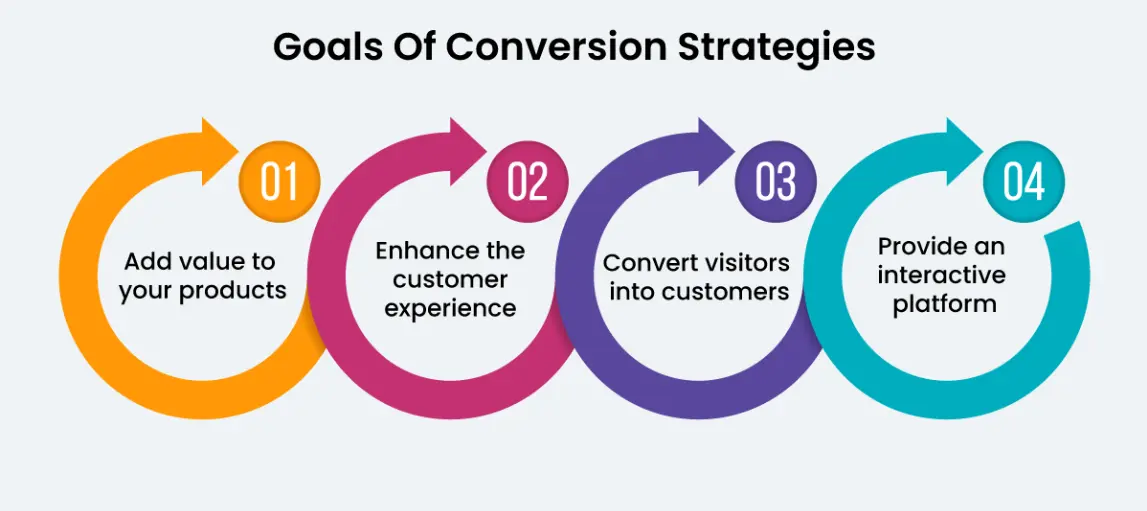
The conversion strategies of elite prospects are as follows:
- Product Demos: Show how your product works. A SaaS provider might offer a live demo to showcase features.
- Free Trials: Let them experience your product. A gym could offer a week of free classes.
- Special Offers: Provide incentives to buy. An e-commerce site might offer a discount for first-time buyers.
Suggested reading: Ecommerce Automation
Measuring The Final Success
To measure the final success after converting elite prospects is talked about in this section.
Key Metrics
The key metrics to measure success are:
- Conversion Rate: The percentage of prospects who become customers. An online course platform tracks how many free trial users convert to paid subscriptions.
- Engagement Rate: How often prospects interact with your content. A newsletter tracks open and click rates.
- Response Rate: The percentage of prospects who respond to your outreach. A sales team monitors email reply rates.
Tools for Measurement
The tools for measurement of success are:
- Analytics Software: Track and analyze data. A marketing team uses Google Analytics to measure website traffic from email campaigns.
- CRM Reports: Generate detailed insights. A sales manager reviews CRM reports to evaluate the effectiveness of their outreach strategies.
Frequently Asked Questions (FAQs)
How do you identify good prospects?
Good prospects show genuine interest, have a clear need, can afford your product, and possess the authority to make purchasing decisions. Identifying these factors ensures a higher likelihood of conversion.
Why are prospects important in sales?
Prospects are crucial because they represent future revenue opportunities. Engaging and converting them into customers directly impacts business growth and sustainability.
What tools can help in identifying prospects?
Tools like CRM systems, social media platforms, industry publications, and networking events can help in identifying and managing prospects effectively, streamlining the sales process.
How can you nurture prospects?
Nurture prospects through personalized communication, follow-up emails, and sharing relevant content. These strategies build trust, keep them engaged, and guide them through the sales funnel.
What metrics are used to measure prospect engagement?
Key metrics include conversion rate, engagement rate, and response rate. These metrics help assess the effectiveness of your prospecting efforts and refine your sales strategies.

